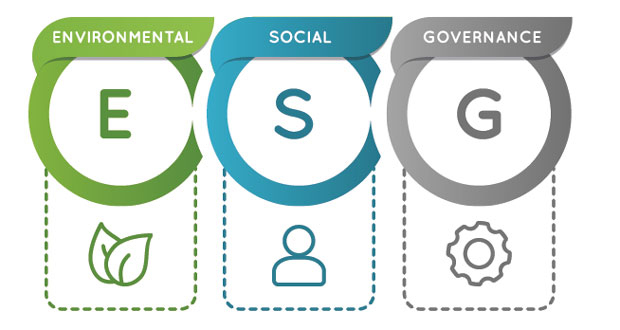According to a new survey by EcoOnline, a leading technology platform for safer workplaces, 50 per cent of employees merely regarded ESG as a box-ticking exercise, indicating significant levels of employee disengagement with and disinterest in this important activity.
The findings from an ESG (Environmental, Social, and Governance) survey conducted in June 2022 amongst 124 businesses also found that a significant minority of businesses are not actively reporting on ESG measures and performance, with 42 per cent of survey participants disclosing that their organisation currently has no reporting system in place.
ESG reporting is the publication of data for the purposes of documenting an organisation’s ESG activities, and strengthening investor and customer transparency. It typically encompasses qualitative disclosures of relevant and pressing topics surrounding the three pillars of environmental, social and governance practices, and quantitative metrics used to measure performance and effectiveness of strategies.
As demand for clear and transparent disclosure on long-term ESG strategies grows, ESG reporting is an increasingly important tool for organisations to respond to evolving climate, social, cultural and compliance concern.
The study highlights a majority of employees felt organisational pressure to report ESG data had increased in the last three years, with environmental activity flagged as the highest priority (67 per cent).
However, despite these expectations for greater transparency, two thirds of employees responding to the survey (66.7 per cent) claimed their organisation does not produce a publicly available annual ESG or sustainability report. This suggests a concerning lack of clarity surrounding the execution and effectiveness of ESG strategies amongst those businesses surveyed.
With the majority of respondents believing pressure to report on environmental (80 per cent), social (76 per cent) and governance (73% per cent) will increase over the next year, those who don’t make the investment now are putting themselves at financial and regulatory risk.
Organisations that are future-focused and proactive recognise how crucial it is to integrate ESG considerations into their business strategy and vision.
Reflecting the value of a strong ESG strategy to the business bottom line, the research shows that 69 per cent of employees believed that where strong ESG measurement and reporting was in place, it had a positive impact on their organisation’s performance.
Companies are also facing pressure from external factors, with a growing public expectation that they should be directly addressing global challenges such as socioeconomic inequality and climate change.
A third of survey participants (30 per cent) named stakeholders and investors as a significant source of pressure on their organisation to report on sustainability and ESG measures. However, the study also revealed that the biggest source of pressure came from customers, with 31.5 per cent agreeing that customers play a vital role in holding companies to account over the climate crisis.
As UK Government legislation and official regulation becomes more stringent and stakeholder expectations increase, there is an increasing demand for corporations to disclose their long-term ESG commitments in an honest and direct manner. Customers, suppliers, employees, and investors all want to know what the organisation stands for and how dedicated it is to engaging with environmental and social issues.
This introduces the next problem with current ESG reporting systems, raised by the results of EcoOnline’s recent study, with over a third of participants (37.4%) saying that staff taking the lead in gathering and reporting ESG data in their organisation did not have sufficient training. Worryingly, a massive 75 per cent of organisations surveyed in the study do not currently use software to ease the collection of ESG metrics.
Commenting on the research findings, Helene Melby Brodersen, Head of ESG strategy at EcoOnline, said: “It is clear from the results of the study that ESG transparency has and will continue to be a key focus for organisations across all sectors in 2022 and beyond.
“ESG reporting is a vital communication tool that plays an important role in convincing sceptical customers, as well as stakeholders and investors, that an organisation is taking meaningful and proactive action on issues which affect us all.
“Ultimately, ESG reporting is not just a box-ticking exercise, but is intended to inspire an organisation-wide commitment to generating sustainable long-term goals.”





